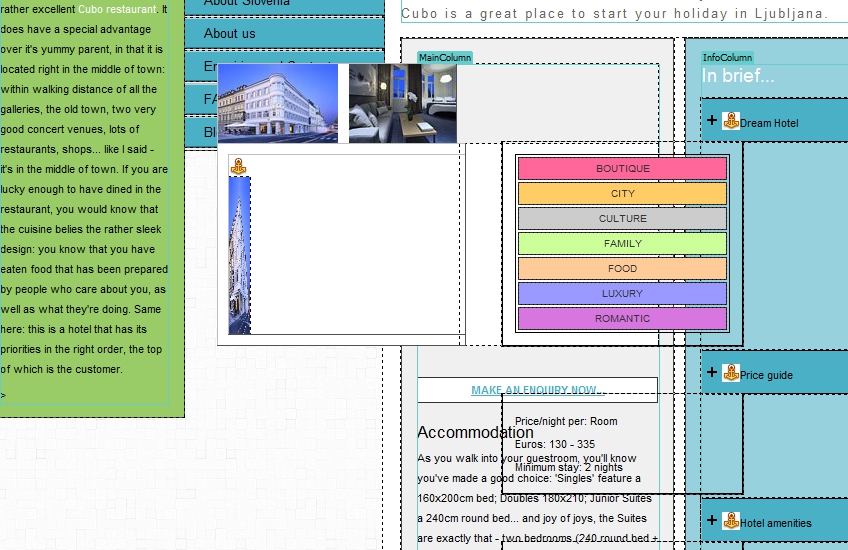Thanks to the Internet we have, as a species, built the first truly global community. Social media, cloud-based software and apps have made it possible for us to forge links into nation-free groups, with the ability to wield influence in all aspects of our lives: economically, politically, socially and all the rest of the alleys, including the back and the tin-pan. Consequently we are able to develop on a personal level like never before, influenced in our turn by the unprecedented access to knowledge that is just, as is the modern argot, a click away.
And if you believe any of that, you are a bellend.
I upgraded lots of software recently, having fumbled along for the past few years with what I assumed to be outdated versions. I say “what I assumed”, because I expected that during my fallow purchasing period the developers would have… developed their products: made them slicker, more ergonomic, better at their core uses, easier to work with and all that good stuff. What I found, to my dismay, was that – even though these programs were/are considered to be ‘industry standard’, ‘leading edge’ and ‘the dog’s bollocks’ – I found that they had hardly improved or changed at all. Indeed, in many ways they had become ‘bog standard’, ‘trailing edge’ and a ‘dog’s dinner’. After all, I had upgraded these suites of programs over the years since the early nineties, and although there were often buggy issues, generally speaking improvements were to be expected. So what had happened?
Forums had happened.
For instance, Adobe, having swallowed the excellent Dreamweaver into its slavering maw, had transformed it from a software program into a ‘business model’. The creators of that business model had identified that their customers end users were a resource: here was a customer base that could be shaped into a ‘global community’, made up of enthusiasts, professionals, nerds and ordinary folks, all having egos that could be relied upon to take the place of Adobe’s customer services department. A group of individuals that would be self-governing while keeping the great unwashed away from the company during its pursuit of the development of… no, not software: money.
There is nothing in Dreamweavers’s current iteration that couldn’t be done in its ancestor of six years ago. To disabuse any of you that us actual web designers have these super-slick programs in front of us, take a look at this web page and then compare and contrast to the screenshot of what I have to deal with in Dreamweaver.

Note the pretty way the columns overlap each other: difficult to read, impossible to edit.
Just think: the nerd-banks of spotty geekery of Silicon Valley (Silicon: a portmanteau word from ‘silly’ and ‘con’) can’t even get it together in all that time to ensure that their prestige program is actually… usable. And probably not least because the world is full of nerdy know-it-alls who will show you a chuffing ‘work-around’ on their stupid up-its-arse blog, instead of the company being pressured by its customers user-base into making the damn thing work properly in the first place.
And that has happened to most software companies (with some fine exceptions: take a bow Al Sparber and Gerry Jacobsen at Project Seven).
In fact, the companies supplying all of the software I ‘upgraded’ had used the intervening years to implement their own ‘business models’, and every single one of them had achieved exactly the same: tweaked-yet-creaky cloud-based software, huge forums run by holier-and-cleverer-than-thou egomaniacs, and a customer services department that, if it existed, could only be accessed by buying into its ‘premium services’.
I’ll try to keep this next bit to one sentence, as plenty has been written on the subject already: Facebook, Twitter and the rest of the ‘SocMed’ bag o’bollocks base their entire business model around allowing the great unwashed to be stupid.
(The owners of these awful monstrosities believe that they are somehow special; that on account of their phenomenal success their world view is somehow important. These are the future Donald Trumps.)
By allowing every damn numpty a say, the entire human race has found itself sliding down the sloping forehead of its own intellect; the lowest common denominator has become the mean – and in some cases, it’s very mean indeed. I may well rage about dental hygienists/plumbers/nuclear physicists voicing their useless opinions on Twit Advisor, but it gets serious when uneducated dimwits gee each other up on media comments pages in order to win back ‘sovereignty’ for Dear Old Blighty, or in defence of jobs for hard-working families being stolen by swarthy types from Far Far Away. (Funny how the standard of grammar and spelling drops exponentially, the more right-wing a commenter is).
Our lives are built around truly global software that ostensibly brings us all together, but in fact keeps us all apart. Being together used to consist of eye contact, a beer or a coffee and time spent exchanging views, personal anecdotes, recommendations, arguments: sharing… with emotion. The modern equivalent is essentially just an exchange of data: I Like this; I’m Here; My truncated opinion of that; A picture of my knob; This is what I’m about to eat; My hotel sux; My very cute child. It’s just mass egocentricity.
We have become attached to a way of being that has become a trap. We think we are communicating, but mostly we are just validating ourselves in a sea of opinion, and our ‘devices’ are the keys that lock us in. Of course, the very same keys could release us and allow us to breathe, give us the space to actually make something, the time to really engage with our thoughts, the stage on which to express them. All we’d have to do is put them down. A couple of hours a day?
We don’t have ‘community’ and ‘freedom’.
On the contrary, we’ve been chained and set adrift.

Recent Comments